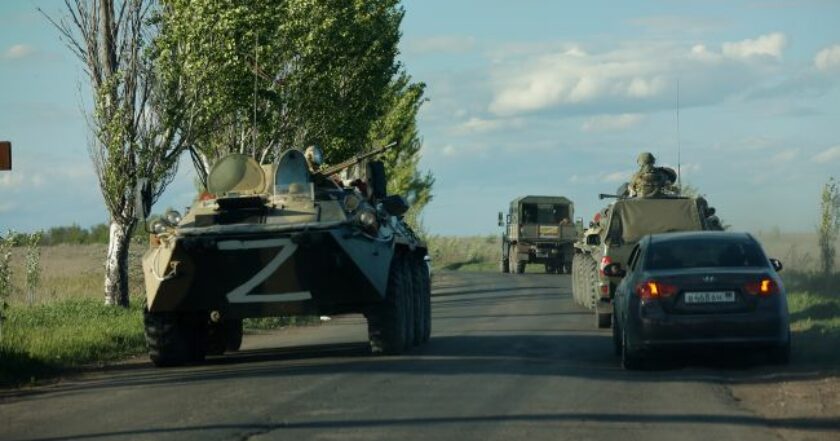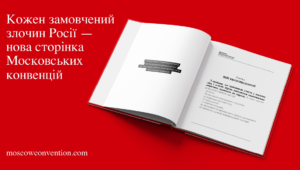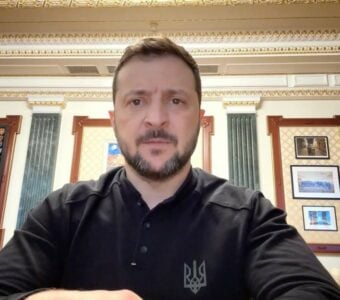Russian army lacks resources to sustain intensive offensive – ISW

Illustrative photo
The Russian troops lack the necessary personnel and resources to sustain aggressive operations indefinitely in certain front regions. As a result, they are likely to continue experiencing setbacks in achieving significant operational gains.
The Institute for the Study of War (ISW) reported that.
According to ISW analysts, the current Russian offensive in eastern Ukraine is likely to reach its climax "in the coming months, if not weeks."
According to the report, Russian forces have made significant gains in their tactics but have not shown the capability to capture strategically important targets. ISW distinguishes between tactical advantages that impact the tactical level and operational benefits that affect a significant portion of the front line.
According to analysts at ISW, Russia's capture of Vuhledar will not significantly alter the operational situation in the western Donetsk region. The ongoing offensive operation in the area will likely challenge Russian forces in achieving their objectives.
"Russian offensive operations that are pursuing operationally significant objectives, like the Russian effort to seize Chasiv Yar or to push Ukrainian forces off the left (east) bank of the Oskil River, have either stalled or are resulting in particularly gradual gains over long stretches of time, respectively," the report reads.
As previously stated, the Russian military command had been planning the current offensive operation for several months and had gathered operational reserves and resources in preparation. However, due to the intense fighting in recent months, these reserves and resources are expected to be significantly diminished.
As reported, the Russians planned to form a new group of up to 70,000 inactive operational reserves for an attack on the northern region of Kharkiv in May and the Pokrovsk front in the summer. However, during the offensive on these two fronts and the defense of the Kursk region, the Russian Federation suffered significant losses within these reserves.
Russian troops also continue to suffer significant losses in armored vehicles during extensive and unsuccessful mechanized assaults along the entire front line, in particular in the Donetsk region.
ISW predicts that despite the accumulated reserves of equipment for such assaults, in the medium and long term, the limitation of Russian armored vehicles will become more and more noticeable. The current exhaustion of the Russians in the Donetsk region and the subsequent forced redeployment of Russian troops to the Kursk region will weaken Russia's ability to support offensive operations in the northeast and east of Ukraine. However, ISW analysts suggest the Russians will likely continue to reduce offensive activity first in lower-priority areas of the front rather than evenly across the front line.
According to the ISW forecast, the current Russian offensive operation, which intensified in the summer of 2024, "is likely to reach a climax in the coming weeks and months." However, Russian troops can continue to conduct offensive operations at a much slower pace throughout the territory of Ukraine, according to the Institute's analysts.
ISW key findings as of October 3:
- The Russian offensive effort in eastern Ukraine, which began in the fall of 2023, continues to produce gradual tactical gains in specific sectors of the front. However, operationally significant gains will likely continue to elude Russian forces.
- Ukrainian forces are conducting an effective defense in depth along the frontline, inflicting significant losses upon Russian forces while slowly giving ground but preventing the Russian military from making more rapid gains on the battlefield.
- Ukrainian forces face serious operational challenges and constraints, providing Russian forces opportunities to pursue tactically significant gains.
- Russian forces do not have the available human resources and materiel to continue intensified offensive efforts indefinitely, however, and current Russian offensive operations in eastern Ukraine will likely culminate in the coming months, if not weeks, as Ukrainian officials and ISW have previously assessed.
- Russian forces have recently made notable tactical gains but have not demonstrated a capacity to seize operationally significant objectives.
- The Russian military command prepared the ongoing Russian summer 2024 offensive operation for months in advance and accumulated operational reserves and resources for the operation that the recent months of attritional fighting have likely heavily degraded.
- Russian forces have reportedly committed a significant portion of their intended operational reserves to offensive operations in the Donetsk and northern Kharkiv regions, indicating that the Russian military command may have prioritized forming operational reserves to support offensive operations in priority sectors of the frontline over developing theater-wide strategic reserves for the entire offensive campaign in Ukraine.
- The Russian military command continues to prioritize offensive operations in priority sectors of the frontline over long-term planning for Russia's theater-wide campaign in Ukraine. Still, the Ukrainian incursion into the Kursk region appears to have significantly complicated the development of Russia's operational reserves.
- Russian President Vladimir Putin appears to be using the "Time of Heroes" veteran support program to militarize regional and local government administrations and further solidify a pro-war ideology in the Russian state and society.
- Russian authorities continue to arrest Russian officials on charges related to mismanagement and corruption within the Russian Ministry of Defense (MoD).
- Strikes reportedly targeted an ammunition depot near Russia's Hmeimim Airbase in Latakia Province, Syria, overnight on October 2 to 3.
- Russian forces recently advanced south of Siversk and east and southeast of Pokrovsk in the Donetsk region.
- Russian authorities continue to nationalize Russian enterprises for the federal government's benefit.
For reference:
According to the data of the General Staff of Ukraine, the total combat losses of Russian troops in human resources from February 24, 2022, to October 4, 2024, amount to about 657,940 people; in particular, 1,230 invaders were eliminated in the last day.
Furthermore, Moscow intends to continue bolstering the number of occupying forces. Officials in Britain have forecasted that by 2024, the Russian government aims to recruit approximately 400,000 contract soldiers to make up for significant losses in the conflict with Ukraine.
Putin announced that he will enlist 500,000 more Russians by the end of the year to join the ongoing war against Ukraine, as there are currently 617,000 already fighting.





















































